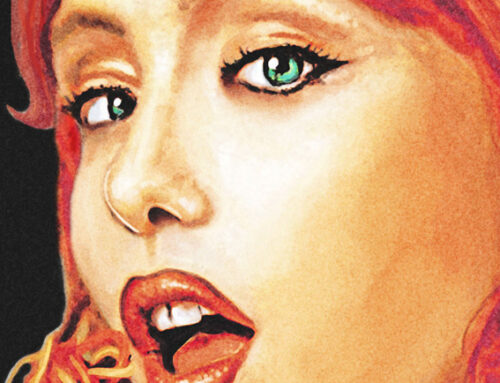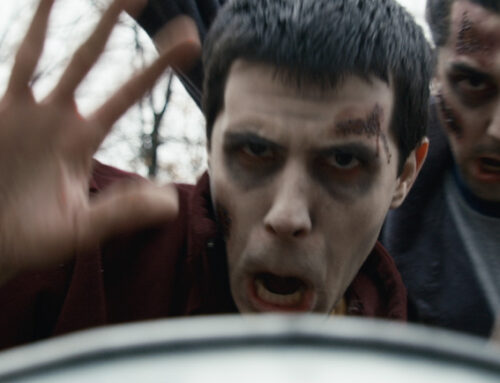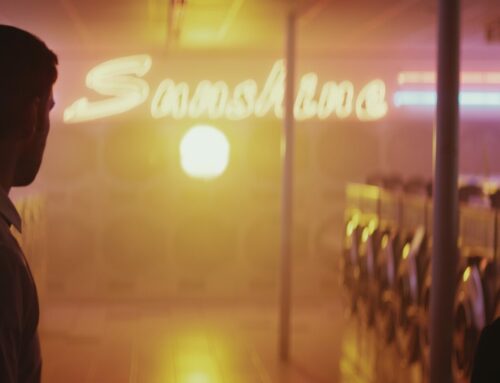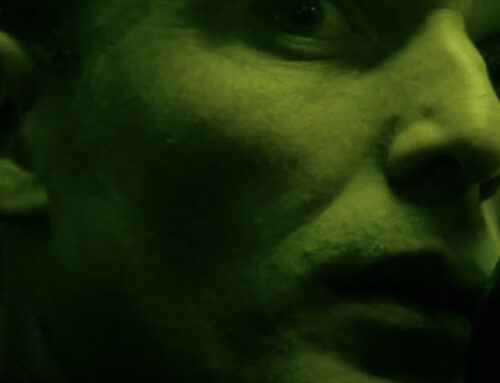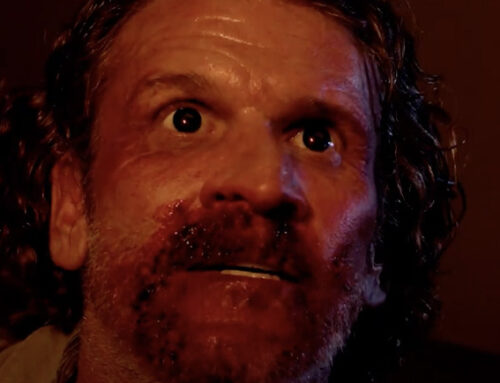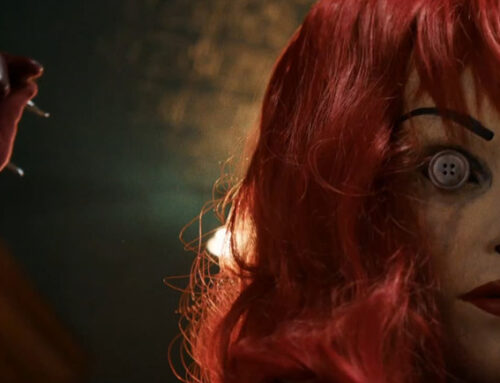Today we’re speaking to film and television composer, producer, and musician, P. Andrew Willis. Willis has been crafting original music and sound for film and television for over 20 years. His experience in creating haunting music for films like 29 Needles led to working on the dark holiday comedy from Chris Kasick Company’s/Dark Sky Films, Uncle Nick. The original music soundtrack for Uncle Nick was recently released and is now available on Amazon Music, Apple Music/iTunes, Bandcamp, and Spotify. In this exclusive interview, we discuss the role Willis had on Uncle Nick, his composing process, and his recent work.
What are some of the different roles you have held for the score or sound of a project, and how do they influence your success as a composer?
I’ve worked as a composer, arranger, session musician and creator of raw materials to build scores around. I’ve also done sound design for several projects. Being a film composer is a collaboration, so I approach everything as being a part of a bigger picture, whether I’m the sole composer of a score, or chipping in on another composer’s project. I find it very rewarding to be part of a team effort, and I think it’s helped make me a better composer to work in as many areas of film sound as I can. It definitely makes me consider how the music is going to play when all the elements of a film’s sound are working together holistically.
Can you walk us a bit through the elements of the score on Uncle Nick and how they supported the film’s narrative?
Uncle Nick is a dark holiday comedy, so the range of music had to be fairly broad. There were comedic cues that centered around the dialog and on screen actions – hitting with jokes and physical comedy moves, and there were some Xmas inspired arrangements, but then it also had to go in a pretty dark direction, verging on horror scoring in spots as the story unfolded and the characters started unraveling. I had recently seen Goblin perform the original Suspiria score, so that was definitely in the back of my mind for a few cues that were veering towards the darkness, and the director, Chris Kasick had used some very stylized red lighting in spots which also nudged me in that direction.
What is the first step of your composing process? How do you get in the right mindset to score a project?
The first step for me is usually to have a conversation with the filmmaker to see what they’re envisioning for the music or if they have any general thoughts on the feel and mood for the film’s sound. Sometimes they have a specific comparison or another score they like as a reference. Other times, they might just say go for it and see what I come up with. Usually I watch a film once or twice through, then watch again with a synth or guitar close by to start trying out little motifs and sounds that might start to make up the thematic and sonic palette. In some cases, the film is scored with temp music that has to be replaced which can be a challenge, especially if the filmmakers have lived with it in the project for a while.
I know this industry can require a lot of hours, but it is surely a labor of love. What do you all find to be the most fulfilling or favorite thing about your job?
I love when I write a piece of music that is something I’d want to listen to and that also works for the film. I love it even more when the filmmaker agrees!
Have any of you gotten a chance to use a unique sound, odd instrument, or musical easter egg in one of your scores?
I try to add a little something unique to every score I compose. In the case of Uncle Nick, as I started coming up with sounds for the 10¢ Beer Night segments which were told in Innings and filmed in slow motion black and white, I was trying to find something unique to flesh out the orchestration and give them a signature sound. The visuals of spilling beer, close-ups of bubbles in a cup, and dimes falling from the sky inspired me to try using the steam radiators in my space as percussion instruments. They had a metallic, but muted and bubbly sound when struck with mallets that worked great to give some drive to the Innings while adding a unique sonic signature to set them apart from the music in the rest of the film.
29 Needles is a recent score where I had a lot of room to explore unique textures and instrumentation and I used various digital synths, my voice, homemade glass harp, glass, metal and other percussion including lots of household items, electric guitar and bass feedback, and accordion – just the air going in and out of the bellows like a breathing creature.
For The Inhabitants (dir. The Rasmussen Brothers), we had a bassoonist play a bunch of improvised passages, effects, and extended techniques, which I programmed into a sampler. We used those sounds extensively throughout the score and they added quite a unique flavor.

Any big wins or recent projects you are excited about?
I know it’s a couple of years ago now, but the pandemic killed a year of our lives, so I have to shout out director Scott Philip Goergens for winning Best of the Fest at the Nightmares Film Festival in 2019 for his film 29 Needles, and having it released by Unearthed Films in 2021. I was with him through the whole post process and the score and sound design really were a labor of love. I’m extremely happy with how the score turned out and that he got the recognition he deserved for a totally singular film!
A very different kind of project that I finished earlier this year was American Oz, a doc about L. Frank Baum, author of The Wonderful Wizard of Oz. The score had to cover a lot of ground thematically for Baum’s circuitous life journey and the director had a very cinematic, magical style in mind which was a lot of fun to compose. I had a great group of musicians who played the music, and though it was a challenge to record them one at a time rather than as a group because of Covid, it turned out wonderfully.
—
Learn more about P. Andrew Willis on his website – https://pandrewwillis.com. Thanks for reading!

